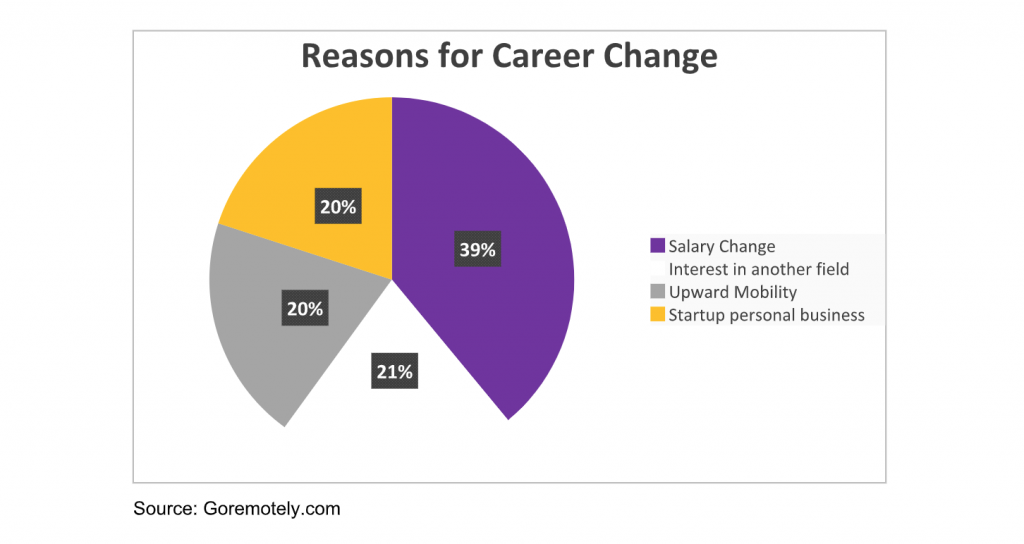In 2007, I worked in the operations department of one of Nigeria’s biggest banks as a transaction supervisor. One day, a customer walked up to me and asked if I was interested in human resource management as I looked like a good fit. My interest was immediately piqued and thus began my career transition from operations to human resources management.
While many people have a similar career transition story, there are many others whose career transitions have taken a different route. People have chosen to pivot careers for various reasons such as salary change, interest in another field, and upward mobility.

To successfully navigate a career transition plan, the following tips are important;
1. Start with the end in mind
Where exactly do you want to be at the end of your transition? You need to be clear on what you want and stick to it. I was sure I wanted to be in HR it aligned with my
skills, and my passion and it was perfect for me. I could see myself growing and excelling as Human resource personnel and I held on to that dream. Transitioning may be difficult for a few people because they haven’t figured out where they want to be in the end. They may already be sure they are ready to leave but to where? And to become what? These questions should be answered before commencing a career transition
2. Upskill
As soon as my interest was piqued, I began thinking of the best way to get into HR fully. The first thing I did was get a post-graduate degree in Human Resources.
I paid more attention to learning as many HR-related skills as possible and putting myself out there. What are the skills you would need in your current role? Do you possess them? If not, how do intend to gain these skills?
3. Volunteer
A career change does not happen overnight, and often, it may be difficult to convince people you have the skills necessary to thrive in a new environment without any significant experience. One surefire way to test the skills you have learned is by volunteering for positions/tasks that require these skills. Volunteering is also important to keep you occupied and interested while you wait for an opportunity in your industry.
4. Continue to work at it
Career transitioning takes time and effort. Many people often get discouraged and give up hope before achieving their dream. To avoid this, you must continue to work hard and leverage all skills and connections available. Leverage your network, leverage your mentors, and leverage a career transition coach. Also, leverage technology as much as possible.
5. Be intentional and deliberate
Several years after deciding to transition to HR, I finally got an opportunity that clicked. I could finally see the end picture I had started with right before me. I had spent all those years taking intentional steps and making decisions that aligned positively with the picture in my head. Right after I started my HR role, I began taking all the relevant certifications that I knew would influence my growth. I set goals and worked hard to achieve them.
Career transitions are much more than moving from one role to another. They are complex, life-changing, and sometimes draining. To pivot successfully, you need the right mindset, patience, and adequate support.
Where are you in your career transitioning journey? I’d love to hear from you in the comments.
Until then, Keep thriving!

